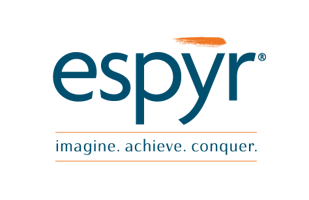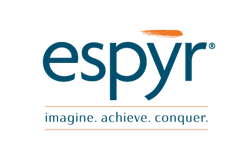Frontline Supervisor Newsletter
September 2022

Members - Your Most Valuable Resource
I made my employee an assistant supervisor, but I see him struggling in the leadership role. He isn’t very proactive, doesn’t speak with authority, and is not decisive. Can the EAP help? Or would it be better to suggest workshops or other supervisor training where skills can be taught?
Assuming you have discussed with your employee the need to demonstrate better leadership skills and then not seen any results, you can’t assume the difficulty your employee faces is only a lack of knowledge and know-how. The dynamic you describe is a continuing problem despite your effort as a manager to correct it, so an EAP referral is a good starting point. This does not rule out continuing education the EAP may suggest to the employee. The EAP will discuss the difficulties he is experiencing in the position, the work climate, and the employee’s understanding of what underlies the problem. Many issues can interfere with performance beyond the educational piece, but it is likely the EAP will identify what they are. Expect that a release will be signed with the employee’s permission. The EAP may inquire about your experiences during and after your attempts to guide the employee to improve his performance, which can offer the EAP professional greater insight.
What is meant by an employee having a “growth mindset”?
A growth mindset is a term first coined by Carol Susan Dweck, Ph.D., a Stanford University psychologist. She was famous for her studies of mindset, temperament, and personality. A growth mindset refers to the way employees approach the world of challenges and obstacles with optimism, a sense of opportunity, resourcefulness, positivity, and resilience. This contrasts with employees who may have a “fixed mindset” and resist learning something new, give up easily when faced with obstacles, feel anxious about others’ successes, and shy away from negative feedback. Consider researching “growth mindset” online to identify articulable descriptions of positive behaviors associated with the mindset. Then you can reward and affirm these behaviors while also helping struggling employees by guiding them in performance reviews to adopt the behaviors and work attributes that support productivity and help demonstrate outstanding performance. You also can use the EAP to help employees overcome patterns of ineffective approaches to work struggles.
What is “brain fog,” and what might a supervisor observe in an employee struggling with this condition?
Brain fog is a descriptive term for a set of symptoms that interfere with a person’s ability to think. But it is not a recognized medical diagnosis. Recently, brain fog has received public awareness in the media as it pertains to a constellation of complaints experienced by those who contract COVID-19. Symptoms include difficulty in expressing one’s thoughts, inability to mentally calculate things quickly, feeling disorganized, dizziness, and struggles with memory. Causes of brain fog can be attributed to not just COVID- 19 but also other issues like lack of sleep, stress, pollution, poor diet, and anxiety. At work, any of the above may be blamed for performance issues. So, diagnosing something as brain fog or dismissing symptoms as such can have serious consequences, since other medical problems may be related to an employee’s condition. Refer employees to approved health, wellness, or EAP resources for assistance, assessment, or further referral.
Source: www.pubmed.ncbi.nlm.nih.gov/23999934/
Most of the employees in our office, including me, wander into work late by 10–15 minutes every day. One employee has started coming to work 45–60 minutes late. All of this has to stop, so how do I “push the reset button”? Should I have a meeting and lay down the law?
The near-universal problem of tardiness coming to work that you describe has its origins in the permissibility you have shown by your example. So the starting point is changing your behavior first, both to model a new standard and to set the stage for something new. You then can have a meeting, but going forward, deal with your employees individually rather than as a group regarding this issue because it is personal responsibility, not a team effort, that will be required to make the changes needed. One employee is coming in extraordinarily late. Anticipate this person coming in on time when the new standard is set, but later, coming late again would not be unusual if a personal problem of some sort exists. Consider the use of the EAP if this pattern resumes.
I have been a manager for 20 years. Although I have advised other supervisors on confronting difficult employees, it still seems more like an art than a science to inspire changes in an employee. What are the best tips for confronting difficult employees to keep and pass along?
Although each of the following could be divided into additional steps, they represent some of the best tips for correcting behavior or performance.
1) Don’t delay in dealing with a problem. As time passes, it generally becomes more difficult to correct.
2) Prepare to be surprised by an employee’s explanation for the behavior or issue. Be open-minded about what to do next.
3) Don’t be long-winded, lecturing, or parental. It triggers resistance.
4) Employees are your most valuable resource. Keep this in mind and you will use the right tone.
5) Don’t be angry with employees to the degree that you forget to remind them what they do well. Doing so generates motivation to cooperate with you.
6) Bring notes or an outline. It helps you and helps the employees take you seriously.
7) Meet in a nonsocial, business setting to convey importance.
8) Mention the EAP as a resource for employees to use if they experience difficulty making the changes requested.


